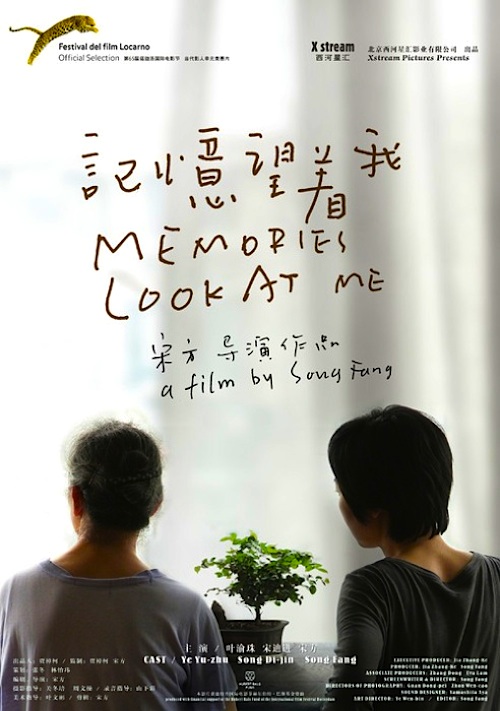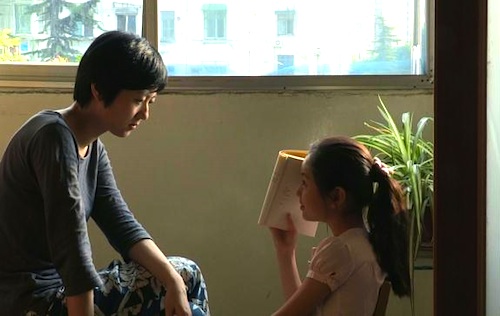 By Joe Bendel. It turns out you can go home again, but you’re likely to get antsy after awhile. A grown daughter and her aging but still vital parents gently reminisce in Song Fang’s Memories Look at Me, produced by trailblazing independent Chinese filmmaker Jia Zhangke, which screens tomorrow as a main slate selection of the 50th New York Film Festival.
By Joe Bendel. It turns out you can go home again, but you’re likely to get antsy after awhile. A grown daughter and her aging but still vital parents gently reminisce in Song Fang’s Memories Look at Me, produced by trailblazing independent Chinese filmmaker Jia Zhangke, which screens tomorrow as a main slate selection of the 50th New York Film Festival.
Song Fang plays herself, as do her parents, Song Di-jin and Ye Yu-zhu, as well as her brother, Yuan. Since they are really related, the on-screen relationships are all quite believable. Yet there is hardly a hint of family dysfunction here. Visiting from Beijing, Song stays in her parents’ Nanjing flat, which looks quite livable. Her brother drops by as does her bright young niece. Frankly, her parents appear to be the model of middle class respectability and their granddaughter should have a promising future ahead of her. Song, though, is less sure of her place in the world.
Memories is like a Digital Generation attempt at an Ozu movie. That is all very nice, but it leaves the audience with a raft of questions. First and foremost, how did her borderline bourgeoisie parents survive the Cultural Revolution, which they were surely old enough to witness first hand? Yes, they share memories of hard times, including hunger and hospitals, but are these oblique references to Maoist persecution or merely the experiences of those who have lived through an era of sharp economic contraction? As a close second, the thirty-ish Song’s status as one of three siblings in One Child China begs for further explanation as well.

Nonetheless, Song presents an intriguingly oblique view of the new China, through discussions of the relative merit of different forms of insurance (isn’t the Party insurance enough for everyone?) and the hectic on-the-go lifestyle of Beijingers. Memories also subtly reminds audiences of the importance of family, in an almost Confucian sense, without ever remotely approaching didacticism.
Of the many hats writer-director-editor-co-producer Song wears, her lead performance as her pseudo-self is easily the most impressive. She has moments of simple, straight forward regret that are truly honest and powerful. However, her sense of pacing is a bit sluggish, making some of her mentor Jia’s more deliberate films seem almost break-neck by comparison. The DIY dGenerate digital cinematography is what it is. Those who have seen a number of Chinese art films will know what to expect. Well acted but a tough go for most viewers, Memories Look at Me is best saved for die-hard China-watchers and Sinophiles when it screens tomorrow afternoon (10/7) at Alice Tully Hall, as part of the 2012 New York Film Festival.
LFM GRADE: C+
Posted on October 6th, 2012 at 9:38am.